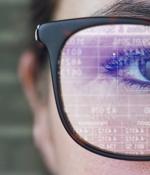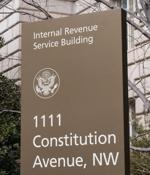Security News

Boffins at the University of Michigan in the US and Zhejiang University in China want to highlight how bespectacled video conferencing participants are inadvertently revealing sensitive on-screen information via reflections in their eyeglasses. In a paper distributed via ArXiv, titled, "Private Eye: On the Limits of Textual Screen Peeking via Eyeglass Reflections in Video Conferencing," researchers Yan Long, Chen Yan, Shilin Xiao, Shivan Prasad, Wenyuan Xu, and Kevin Fu describe how they analyzed optical emanations from video screens that have been reflected in the lenses of glasses.

Two recent ransomware attacks against healthcare systems indicate cybercriminals continue to put medical clinics and hospitals firmly in their crosshairs. In a notification to watchdogs last Friday, Pennsylvania's largest primary care group said a "Sophisticated" ransomware crew breached its network security, giving it access to 75,628 individuals' names, addresses and Social Security numbers along with their medical records.

Security researchers have found that roughly eight out of ten websites featuring a search bar will leak their visitor's search terms to online advertisers like Google. While some websites may declare this practice in their user policy, visitors typically don't read these and assume that the information they enter on embedded search fields is isolated from big data brokers.

TikTok denies recent claims it was breached, and source code and user data were stolen, telling BleepingComputer that data posted to a hacking forum is "Completely unrelated" to the company. The user shared screenshots of an alleged database belonging to the companies, which they say was accessed on an Alibaba cloud instance containing data for both TikTok and WeChat users.

TikTok denies recent claims it was breached, and source code and user data were stolen, telling BleepingComputer that data posted to a hacking forum is "Completely unrelated" to the company. The user shared screenshots of an alleged database belonging to the companies, which they say was accessed on an Alibaba cloud instance containing data for both TikTok and WeChat users.

On Friday, the IRS disclosed that in addition to sharing Form 990-T data for charities, they also accidentally included data for taxpayers' IRAs that was not meant to be public. "The IRS recently discovered that some machine-readable Form 990-T data made available for bulk download section on the Tax Exempt Organization Search should not have been made public," the IRS disclosed on Friday.

A new data extortion group named 'Donut Leaks' is linked to recent cyberattacks, including those on Greek natural gas company DESFA, UK architectural firm Sheppard Robson, and multinational construction company Sando. Strangely, the data for these victims have now appeared on the data leak site for a previously unknown extortion gang known as Donut Leaks.

Israeli researcher Mordechai Guri has discovered a new method to exfiltrate data from air-gapped systems using the LED indicators on network cards. These systems work in air-gapped networks and still use a network card.

A novel data exfiltration technique has been found to leverage a covert ultrasonic channel to leak sensitive information from isolated, air-gapped computers to a nearby smartphone that doesn't even require a microphone to pick up the sound waves. "Our malware generates ultrasonic tones in the resonance frequencies of the MEMS gyroscope," Dr. Guri said in a new paper published this week.

Novant Health confirmed that it may have disclosed 1.3 million patients' sensitive data, including email addresses, phone numbers, financial information - even doctor's appointment details - to Meta. Novant finally copped to sending letters to "Some of its patients following possible disclosure of protected health information resulting from an incorrect configuration of a pixel, an online tracking tool," in a statement released late on Friday.